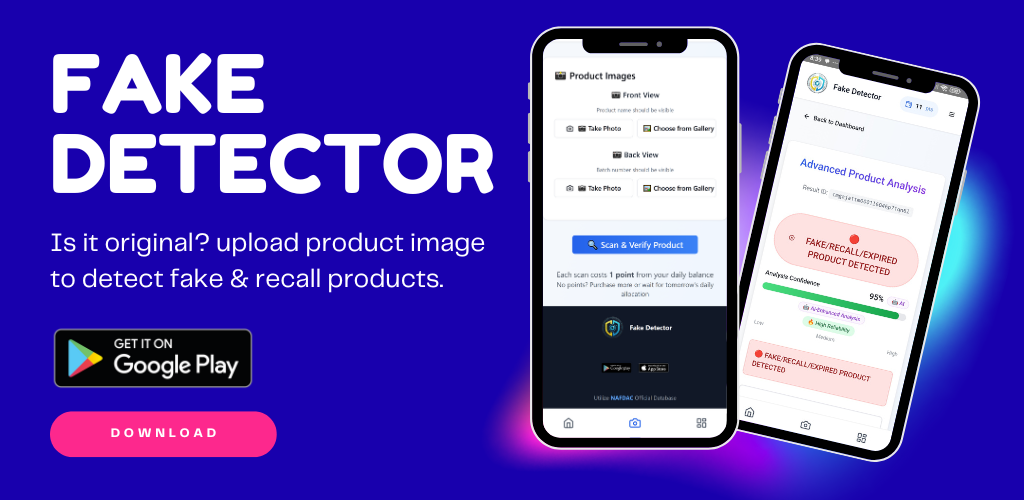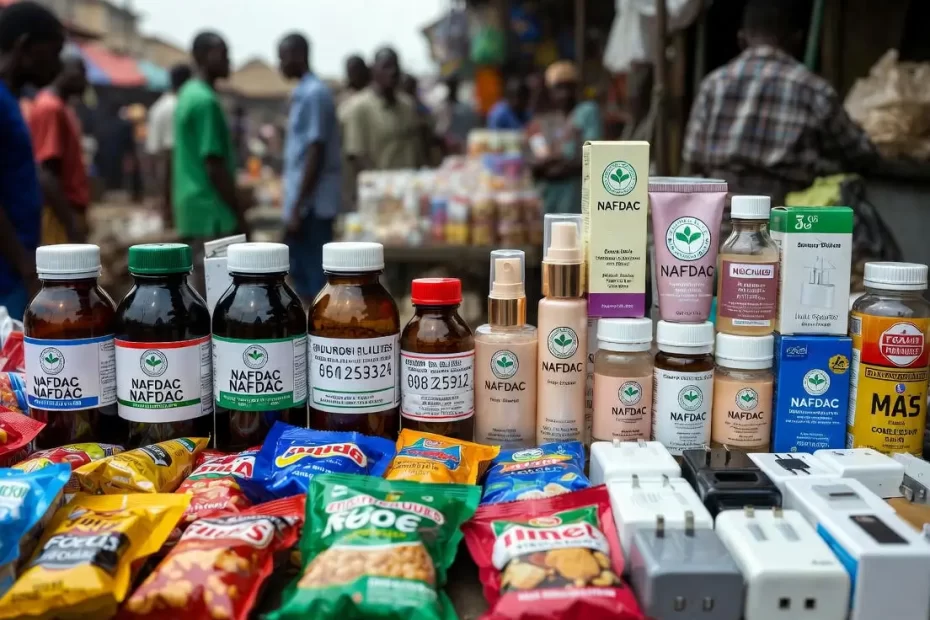Table of Contents
How to Detect Fake Products in Nigeria: In Nigeria, the market is flooded with counterfeit goods, from medicines and skincare products to food items and electronics. These fake products not only drain your wallet but can also pose serious health risks.
According to reports, fake medicines alone contribute to thousands of deaths annually worldwide, with Nigeria being a hotspot due to lax enforcement in some areas. But don’t worry – with the right knowledge, you can spot fakes and protect yourself. In this guide, we’ll cover essential tips on how to detect fake products in Nigeria, including tools from NAFDAC and practical steps for everyday shopping.
Whether you’re buying in bustling markets like Idumota in Lagos or online, staying vigilant is key. Let’s dive into how you can become a pro at identifying counterfeit items.
Why Counterfeit Products Are a Big Problem in Nigeria
Counterfeit products are imitation goods designed to look like genuine brands but often made with substandard materials. In Nigeria, the issue is rampant, affecting sectors like pharmaceuticals, cosmetics, and consumer goods. Fake products can lead to health complications, financial losses, and even support illegal activities.
Common culprits include fake drugs that lack active ingredients, adulterated food items, and knock-off electronics that malfunction quickly. By learning to detect fake products in Nigeria, you’re not just saving money – you’re safeguarding your well-being.
Common Types of Fake Products in Nigeria
Before we get into detection methods, it’s helpful to know what to watch out for. Based on consumer reports and agency alerts, here are some frequently counterfeited items:
- Medicines and Pharmaceuticals: Often lacking potency or containing harmful substances.
- Skincare and Cosmetics: Fake creams that cause skin damage.
- Food and Beverages: Adulterated oils, milk, and canned goods with spelling errors on labels.
- Electronics and Accessories: Counterfeit phones, chargers, and batteries.
- Clothing and Bags: Knock-offs of popular brands with poor stitching.
Knowing these categories helps you apply targeted checks when shopping.
NAFDAC Counterfeit and Recall Alerts in 2025
The National Agency for Food and Drug Administration and Control (NAFDAC) has issued numerous public alerts throughout 2025 to combat the circulation of counterfeit and substandard products in Nigeria. These alerts focus on pharmaceuticals, medical devices, food items, and cosmetics, highlighting risks such as treatment failure, health complications, and potential fatalities. Counterfeit alerts emphasize falsified packaging and unauthorized batches, while recalls address substandard quality, impurities, or manufacturing defects. You can download the Fake Detector Mobile App to scan your product before you buy them: https://play.google.com/store/apps/details?id=com.sampidia.fakeproductdetector

General Tips to How to Detect Fake Products in Nigeria
Here are proven ways to spot counterfeits. These apply to most products and are easy to implement.
1. Check the NAFDAC Registration Number
All regulated products in Nigeria must have a NAFDAC (National Agency for Food and Drug Administration and Control) registration number. This is a key indicator of authenticity; How to Detect Fake Products in Nigeria;
- Look for the number on the packaging (e.g., “NAFDAC REG. NO: 01-1234”).
- Verify it online via the NAFDAC website or their Greenbook app, where you can search by product name, brand, or number.
- Fake products might have invalid or duplicated numbers. If it’s missing or looks tampered with, walk away.
Remember, even if a number is present, counterfeiters sometimes fake it, so double-check using official tools.
2. Inspect the Packaging Quality
Genuine products have high-quality packaging, while fakes often cut corners.
- Real vs. Fake: Clean, sharp fonts and logos on originals; blurry prints, misspelled words (e.g., “sweat corns” instead of “sweet corn”), or cheap materials on fakes.
- Check for barcodes, holograms, and expiry dates – they should be clear and not smudged.
- Feel the material: Authentic items use premium paper or plastic; counterfeits feel flimsy.
For example, in food items like canned goods, look for funny spellings or inconsistent colors.
3. Be Wary of Unrealistic Prices
If a deal seems too good to be true, it probably is. Counterfeit sellers undercut prices to attract buyers.
- Compare prices with official retailers or apps like Jumia and Konga.
- Avoid street vendors offering “branded” items at rock-bottom prices.
4. Buy from Reputable Sources
Shop at authorized stores, pharmacies, or online platforms with return policies. Markets like Idumota are convenient but risky – always apply extra checks there.
5. Look for Trademarks and Composition Details
Genuine brands display clear trademarks and ingredient lists. Fakes might have vague or incorrect percentages.
Detecting Fake Medicines: Use NAFDAC’s Tools
Medicines are a high-risk category. Here’s how to verify them:
Mobile Authentication Service (MAS)
NAFDAC’s MAS is a game-changer for checking drug authenticity.
- Scratch off the code on the packaging.
- Send the revealed PIN via SMS to 38353 (works on all networks, no internet needed).
- You’ll get an instant response: “OK” if genuine, or a warning if fake.
- This service is free and supported by participating pharma companies.
It’s simple and empowers you at the point of purchase.
NAFDAC Greenbook App
Download the app to search for registered products. Enter the name or number for verification – it’s an online database of approved items.
If the expiry date is manipulated or erased, that’s a red flag.
Spotting Fake Skincare Products in Nigeria
Skincare fakes can cause allergies or worse. Here’s how to tell:
- Packaging: Real has premium feel; fake has blurry labels.
- Smell and Texture: Genuine products have consistent scent and feel; fakes might be watery or off-smelling.
- Batch Numbers: Match them on the box and container.
- Holograms/Security Features: Many brands use these – fakes lack them.
- Seller Reputation: Buy from trusted beauty stores.
- Price Check: Suspiciously cheap? Likely fake.
- Test Small: If possible, patch-test, but better to avoid doubts.
These tips can save your skin – literally.
Tips for Food and Other Consumer Goods
For groceries:
- Check for spelling errors on labels.
- Verify NAFDAC numbers.
- Avoid products without clear manufacturing dates.
In videos and guides, experts show side-by-side comparisons, like fake oils vs. real ones.
What to Do If You Spot a Fake Product
Report it to NAFDAC via their hotline (0800-162-3322) or website. Your action helps curb the menace.
Conclusion: Shop Smart, Stay Safe
Detecting fake products in Nigeria requires awareness and simple checks like verifying NAFDAC numbers, inspecting packaging, and using tools like MAS. By following these tips, you can avoid counterfeits and enjoy genuine value. Remember, when in doubt, don’t buy – your health is worth it.
Stay updated with NAFDAC alerts and share this guide with friends. Have you encountered a fake product? Share in the comments below!
Keywords: detect fake products in Nigeria, spot counterfeit goods Nigeria, NAFDAC verification, avoid fake medicines Nigeria
